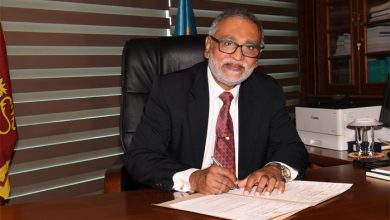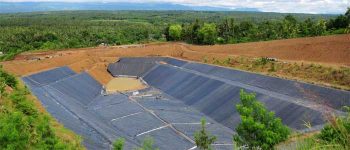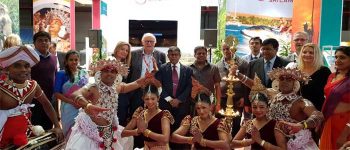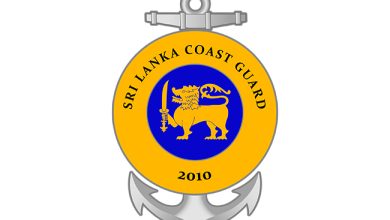The Elephant in the Room

When choosing a holiday destination, people with disabilities have a checklist of what they want. Top of the list is accessible hotels followed by accessible transport and accessible tourist attractions/ experiences. Whilst there is a growing list of tour operators who can provide an accessible holiday (eg Ayu by Walkers in Sri Lanka and Planet Abled in India), the local population has a part to play in making travellers with disabilities feel welcomed and respected.

Having been travelling independently for over 20 years I have experienced a variety of attitudes to disabilities and while globalization has made the world a smaller place, there is still a distinct difference in how countries in the East and West view disability.
On a
flight to USA a few years ago, cabin crew asked me if I was travelling for
business or pleasure. This may not seem
out of the ordinary for most readers, but for a passenger with a disability
this was enlightening. We all tend to
make assumptions on first appearances but the fact that this airline employee
saw past my wheelchair and understood that a person with a disability (PWD) can
work, was refreshing.
Whilst this employee’s view could have been due to her employer’s disability
training program, I also believe it reflected the attitudes of the society in which
she grew up in.
In USA, UK
and Europe disability isn’t seen as a limiter and PWDs have the same wants,
aspirations and needs as everyone else. PWDs play a more active role in society
and engage in normal day-to-day activities.
Walk down any UK High Street and you will encounter visually impaired
people and people with hearing loss; multinational companies feature Paralympians
in their advertising; go to the school in my village and you will see a pupil
who uses a wheelchair; turn on the TV and you will see a weather reporter who
is an amputee; Starbucks have branches where all staff have hearing loss; Mattel
sell a Barbie doll who uses a wheelchair and you can now buy a LEGO wheelchair
user.
In short, disability is all around us and accepted.
Contrast this to Asia where PWDs are invisible in society, rarely seen in a social setting and where disability is a stigma. How many people with disabilities do you see in everyday situations in Colombo? Shopping? At work? Attending school? In McDonalds? True, the current infrastructure doesn’t allow for easy accessibility, but physical access is only half the problem- but the elephant in the room is how society views disability and PWDs.
Taming the Elephant
So, what can be done to change society’s views? Whereas changing the physical environment (by placing ramps, braille signage etc) is straightforward, changing a country’s deep-seated attitudes will take a long time.
The key to changing perceptions is to start seeing people as individuals, treating them with respect and allowing them to live as independently as possible. The government, media and advertising industries have an opportunity to help break down these social stigmas by making disability more visible and hence, more acceptable.
In this respect, social media is a great leveller by showing what can be achieved by PWDs and by educating people about global events and what can be achieved by PWDs. Generation X and Millennials all over the world are watching Youtube, Facebook etc and don’t see differences in sexuality, colour, religion or (dis) ability. They accept the idea of equality and human rights for all.
Education is crucial for ALL children but by having an inclusive education system, able-bodied children will be able to learn and interact with children with disabilities. This ‘integration’ will help children understand that disabilities are a natural part of life and they will observe the specific issues PWDs encounter every day. In turn this will lead to more understanding and compassionate society because the children of today are the politicians, architects and business leaders of tomorrow.
Other policies the government could introduce is to encourage and promote the employment of PWDs. Tax breaks and grants for employers are possible options, along with actively employing PWD in the public sector. Not only would employment benefit the individual PWD’s self-esteem and financial independence, but it would show society that disability doesn’t (and shouldn’t) mean unemployment.
Similarly work experience programmes could be introduced by the private sector. Last year I carried out some consultancy work for a Special Needs college in Dubai where students spent a few hours each week gaining work experience at Microsoft and the Ritz Hotel. These programs benefit the students and the regular employees at these organisations who had often never met a PWD before.
My final suggestion on how to change perceptions concerns the role of the media and advertising. There are 13 million PWDs in the UK- about 1 in 6 of the population. Every country, rich and poor, has similar ratios of PWDs but I don’t see them in Sri Lankan advertising. With the Paralympics coming up later this year in Japan, disability will be shown in a new, positive light throughout Asia. Maybe, just maybe a marketing executive will be innovative and create an advert featuring a PWD???
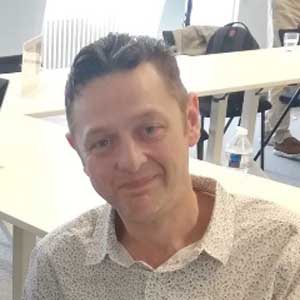
James Exton is CEO of ‘access the globe’, an international disability consultancy. He is visiting Sri Lanka 16-24 March. He can be contacted by emailing james@accesstheglobe.co.uk


